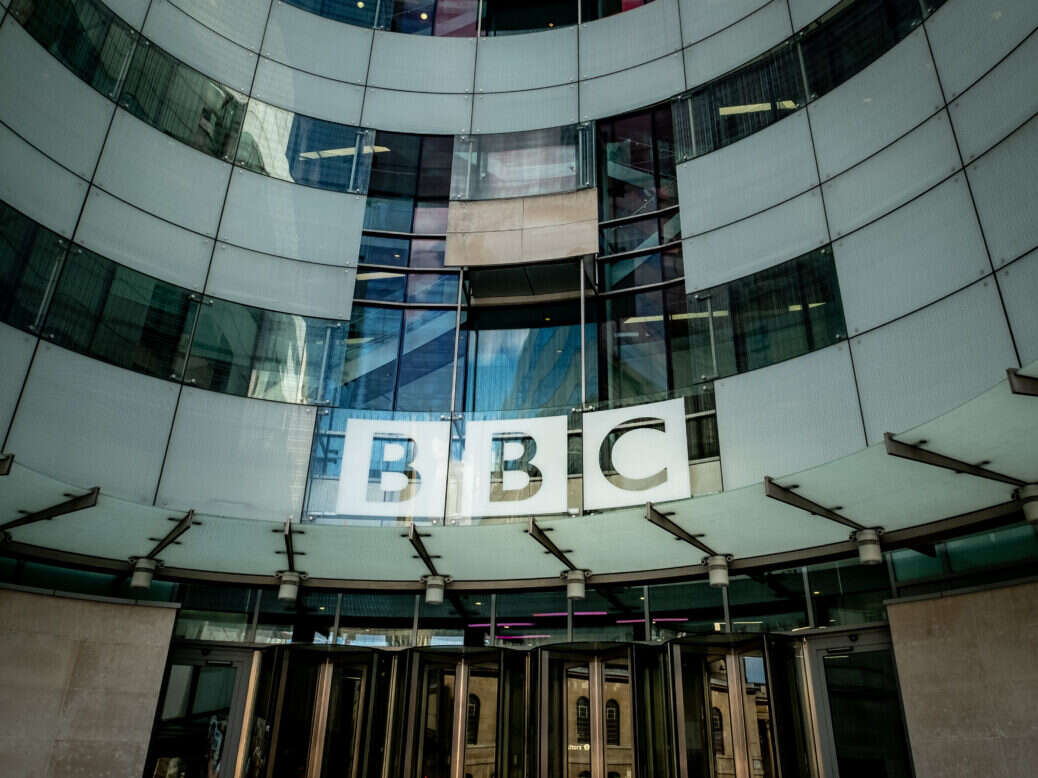
The News Media Association has written to the BBC Board demanding it withdraw plans to extend the corporation’s digital local news coverage.
The body, which represents national and regional newspaper publishers, accused the BBC of seeking to monopolise UK news. The broadside coincided with threats from culture secretary Nadine Dorries to scrap the BBC licence fee.
NMA chief executive Owen Meredith laid out his complaints to the BBC Board in an open letter on behalf of the NMA’s own board and membership.
Meredith wrote that “the BBC is directly threatening the sustainability of independent local journalism with plans to be ever more local”.
He wrote that while the BBC has an “understandable desire to fulfil its purpose” of providing impartial news to the public, this should focus as stated in its Charter on “content not widely available from other United Kingdom news providers”.
Meredith added: “The BBC must consider how its services affect other media organisations and minimise any negative impact on the wider market.
“The plans set out by the BBC as part of the licence fee negotiations with government fail that test.”
Central to the NMA’s objections are the BBC’s Across The UK proposals first published in March 2021 which promised to create more than 100 digital reporter roles focused on serving “some of the UK’s most under-served communities”.
These roles would be separate from the local democracy reporters scheme, which sees BBC-funded local reporters placed at regional newsrooms.
Meredith asked the BBC to withdraw these plans and instead “commit to working in a meaningful way with the independent commercial news sector, setting boundaries to the BBC’s online news remit, to ensure access to quality journalism from a range of sources remains a cornerstone of UK democratic society”.
A BBC spokesperson said: “There is no evidence the BBC crowds out other providers and no reason to think we will in the future. Industry analysis and international comparisons show it is the decline of advertising revenues that’s the biggest challenge to local commercial journalism – not the BBC.
“We spend up to £8m a year supporting the local commercial news sector through our Local Democracy Reporting service. We pay for 165 journalists across the UK who produce stories used by a range of local media providers every day. We offer this support because we believe audiences value having a real choice of local news provision.”
The NMA disputes that the old local media business model is failing, arguing that “the sector’s rapidly-growing audiences and investment in recruitment of journalists” demonstrates otherwise.
Alongside its letter the NMA published the results of self-commissioned surveys indicating that most MPs “agreed it is important that commercial news providers, for example local newspapers, are not marginalised by the BBC’s local news provision”.
Yougov’s interviews with “a representative sample of 88 MPs” in December found that 78% of Conservative MPs and 67% of Labour MPs were worried about “independent local titles being crowded out by the BBC”.
A Savanta poll of 102 MPs in September, also commissioned by the NMA, found 65% of MPs felt local news was important for communicating with constituents.
Monday’s open letter is not the first time the NMA has come out against “Across The UK”. In March 2021, as soon the proposals for new local digital reporters were published, the trade body urged the BBC to channel those funds into the local democracy reporter scheme instead.
Its allegations of licence fee misuse come at an unfortunate time for the BBC, as the broadcaster finds its funding under attack from the culture secretary.
Nadine Dorries wrote on Twitter this weekend: “The days of the elderly being threatened with prison sentences and bailiffs knocking on doors are over. Time now to discuss and debate new ways of funding, supporting and selling great British content.”
And on Monday she told the House of Commons that the licence fee will be frozen at its current level until April 2024 – effectively docking the BBC an estimated £2bn over the next six years because of inflation. The fee will subsequently rise in line with inflation for the four years from April 2024.
The Mail on Sunday reported Dorries views as “inevitable” the abolition of the licence fee in 2027 – when the BBC’s Royal Charter is up for review – because of the rise of subscription streaming services.
The BBC axed regional current affairs show Inside Out in 2020 as part of cost-saving exercises, prompting outcry from journalists and celebrities. A similar replacement show, titled We Are England, was announced this month, and is set to first broadcast on 26 January.
Email pged@pressgazette.co.uk to point out mistakes, provide story tips or send in a letter for publication on our "Letters Page" blog
